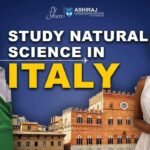
Natural Science in Canada
Canada boasts a rich tapestry of natural wonders, making it an ideal canvas for the exploration of Natural Science. From the towering peaks of the Rocky Mountains to the pristine waters of the Great Lakes, the country’s diverse ecosystems provide a captivating backdrop for scientific inquiry. Natural Science in Canada encompasses a broad spectrum, including geology, biology, and environmental science, as researchers delve into the mysteries of the country’s unique flora and fauna. The vast expanse of the Canadian landscape serves as a living laboratory, inviting scientists to unravel the intricacies of ecosystems and contribute to our understanding of the natural world.
In the pursuit of knowledge, Canadian institutions play a pivotal role, fostering cutting-edge research and innovation. Universities and research centers across the country are at the forefront of Natural Science studies, attracting curious minds from around the globe. The synergy between academic excellence and Canada’s breathtaking environment creates a dynamic platform for scientific exploration, positioning Natural Science in Canada as a beacon of discovery and a testament to the nation’s commitment to unraveling the secrets of the natural world.
Why to Study Natural Science in Canada?
Canada stands as a prime destination for aspiring scientists eager to unravel the secrets of the natural world. Here’s why studying Natural Science in Canada is an enriching and transformative experience:
- Diverse Ecosystems: With its expansive landscapes, from the rugged coastlines of Newfoundland to the serene beauty of Banff National Park, Canada offers a diverse range of ecosystems. Studying here allows students hands-on access to study a wide array of flora and fauna.
- Cutting-edge Research Facilities: Canadian universities and research institutions are equipped with state-of-the-art facilities, providing students with the tools and technology needed to conduct groundbreaking research in fields like geology, biology, and environmental science.
- Global Perspective: Canada’s commitment to environmental sustainability and conservation makes it a hub for international collaboration. Students studying Natural Science in Canada gain a global perspective, engaging with researchers from around the world.
- Quality Education: Canadian universities consistently rank among the top globally. The rigorous academic programs in Natural Science ensure that students receive a high-quality education, preparing them for impactful careers in research and discovery.
- Cultural Experience: Beyond the classrooms and labs, students experience Canada’s rich cultural tapestry. The friendly and inclusive Canadian society adds an extra layer of enrichment to the academic journey.
In essence, choosing to study Natural Science in Canada is a decision to immerse oneself in a world of scientific wonders, where academic excellence meets the breathtaking beauty of nature.
Top Universities to Study Natural Science in Canada
Rank | University | QS World University Ranking 2023 | Type of University | Average Annual Fees | Programs Offered |
1 | University of Toronto | 25 | Public | $35,000 | Biology, Environmental Science, Geology |
2 | University of British Columbia | 51 | Public | $30,000 | Earth and Ocean Sciences, Botany, Zoology |
3 | McGill University | 31 | Private | $40,000 | Life Sciences, Environmental Biology |
4 | University of Alberta | 109 | Public | $28,000 | Ecology, Conservation Biology, Paleontology |
5 | University of Waterloo | 166 | Public | $32,000 | Earth Sciences, Biochemistry, Wildlife Biology |
Embarking on a journey to study Natural Science in Canada requires a strategic choice of the right educational institution. The list of top universities in Canada for Natural Science showcases not only academic prowess but also the diversity of programs offered. The University of Toronto, ranking 25th globally, leads the pack with programs in Biology, Environmental Science, and Geology. For those inclined towards Earth and Ocean Sciences or Botany and Zoology, the University of British Columbia, standing at 51st place, offers a compelling academic environment. McGill University, a private institution ranking 31st, excels in Life Sciences and Environmental Biology.
While considering financial aspects, the average annual fees range from $28,000 to $40,000, with public universities like the University of Alberta and the University of Waterloo providing cost-effective yet high-quality education. This curated list serves as a guide for prospective students aspiring to delve into the fascinating realm of Natural Science in Canada.
Course Curriculum for Natural Science in Canada
- Holistic Approach: The Natural Science curriculum in Canada adopts a holistic approach, encompassing disciplines like biology, geology, and environmental science. This interdisciplinary foundation ensures a comprehensive understanding of the natural world.
- Core Courses: Students delve into core courses such as Biology, Chemistry, and Physics, laying the groundwork for advanced studies. These foundational subjects equip learners with the essential principles of Natural Science.
- Specialized Tracks: The curriculum offers specialized tracks, allowing students to tailor their education. From Ecology and Environmental Biology to Earth Sciences and Conservation, learners can align their studies with their specific interests.
- Research Opportunities: Canadian universities emphasize hands-on research experiences. Students actively engage in fieldwork, experiments, and projects, fostering critical thinking and problem-solving skills.
- Cutting-edge Technology: The curriculum integrates cutting-edge technology, ensuring students are adept at using advanced tools and methodologies. This prepares them for the evolving landscape of scientific research.
- Global Perspectives: Natural Science in Canada incorporates global perspectives, addressing pressing environmental challenges. Students explore international case studies and collaborate on research projects, preparing them for a connected world.
In essence, the Natural Science curriculum in Canada is designed to provide a well-rounded education, blending theoretical knowledge with practical applications. It equips students with the skills and insights needed to contribute meaningfully to scientific discovery and environmental stewardship. Natural Science in Canada truly offers a dynamic and enriching educational experience.
Eligibility Criteria & Admission Requirements for Natural Science in Canada
- Language Proficiency:
IELTS: Minimum 6.5 overall, with no band less than 6.0
TOEFL: Minimum 90 overall, with a minimum of 20 in each section
- Standardized Test Scores:
GRE: A competitive score, typically above 310
GMAT: A competitive score, typically above 600
- Academic Certificates:
A relevant bachelor’s degree in Natural Science or a related field
Transcripts reflecting a strong academic record
- Work Experience:
While not mandatory, relevant work experience enhances the application
Research or fieldwork experience is particularly valued
- Passport & Student Visa:
Valid passport with at least six months’ validity
Successful application for a Canadian student visa
- Application Essays:
Statements of Purpose highlighting career goals and alignment with the program
Letters of Recommendation from academic or professional references
- Interview (if required):
Some universities may conduct interviews to assess the candidate’s suitability
Meeting these eligibility criteria ensures that applicants are well-prepared for the rigors of Natural Science programs in Canada. The emphasis on language proficiency, standardized test scores, academic qualifications, and additional components like work experience demonstrates the holistic approach Canadian universities take in evaluating candidates for their Natural Science programs. Natural Science in Canada welcomes qualified individuals who are ready to contribute to the scientific community.
Documents Required for Studying Natural Science in Canada
- Passport:
Valid passport with a minimum of six months’ validity.
- Letters of Recommendation (LOR):
Two well-crafted LORs from academic or professional references.
- Statement of Purpose (SOP):
A compelling SOP outlining career goals, academic aspirations, and alignment with the Natural Science program.
- Curriculum Vitae (CV):
A comprehensive CV detailing academic achievements, research experience, and relevant skills.
- Official High School Transcripts:
Transcripts reflecting academic performance in high school.
- Educational Certificates:
Certificates confirming completion of relevant educational qualifications, especially in Natural Science or related fields.
- Work Experience Certificate:
If applicable, a certificate validating any relevant work experience, emphasizing research or fieldwork.
- Proof of Financial Resources:
Documents demonstrating the ability to cover tuition, living expenses, and other costs.
Bank statements, sponsorship letters, or scholarship awards.
Ensuring the submission of these documents is crucial for a smooth application process for Natural Science programs in Canada. The meticulous compilation of passport details, academic records, letters of recommendation, and financial proof enhances the likelihood of a successful application. Natural Science in Canada welcomes aspiring scientists who present a comprehensive and well-documented application package.
Admission Process for Natural Science in Canada
- Research Universities:
Identify reputable Canadian universities known for their strong Natural Science programs. Focus on institutions that align with your research interests and career goals.
- Program Selection:
Choose a Natural Science program that suits your academic and research aspirations. Consider the specialization areas offered by each university.
- Eligibility Check:
Ensure you meet the eligibility criteria, including language proficiency (IELTS or TOEFL), standardized test scores (GRE or GMAT), academic qualifications, and any specific requirements of the chosen program.
- Document Preparation:
Gather necessary documents, including passport, letters of recommendation, statement of purpose, curriculum vitae, official transcripts, educational certificates, work experience certificate (if applicable), and proof of financial resources.
- Application Submission:
Complete the online application form provided by the chosen university. Attach all required documents and pay the application fee.
- Wait for Admission Decision:
Patiently await the admission decision. Universities may conduct interviews or request additional information during this phase.
- Student Visa Application:
Upon acceptance, initiate the student visa application process. Submit required documents, including the letter of acceptance, to the Canadian embassy or consulate.
- Travel and Orientation:
Once the student visa is approved, plan your travel to Canada. Attend orientation sessions provided by the university to acclimate to the academic and social environment.
Navigating the admission process for Natural Science in Canada involves careful research, meticulous document preparation, and adherence to university-specific requirements. This step-by-step approach ensures a smooth transition into the dynamic world of Natural Science in Canada.
“Education is the most powerful weapon which you can use to change the world.”
Nelson Mandela
Cost of Natural Science Course in Canada
- Tuition Fees:
Tuition fees for Natural Science programs in Canada vary across universities and provinces. On average, they range from $20,000 to $40,000 CAD per year for international students.
- Living Expenses:
Consider living expenses, including accommodation, food, transportation, and personal expenses. On average, students budget around $12,000 to $15,000 CAD annually for these costs.
- Health Insurance:
International students are required to have health insurance. The cost varies, but it’s approximately $600 to $800 CAD per year.
- Books and Supplies:
Budget for textbooks, lab materials, and other academic supplies, which may amount to around $1,000 CAD per year.
- Miscellaneous Fees:
Factor in additional fees such as application fees, student union fees, and other miscellaneous charges.
- Part-time Work Opportunities:
Explore part-time work opportunities on or off-campus to supplement income. International students are allowed to work part-time during the academic year and full-time during scheduled breaks.
Understanding the cost of studying Natural Science in Canada is crucial for effective financial planning. While the expenses vary, it’s essential to consider not only tuition but also living and miscellaneous costs. Natural Science in Canada offers a rewarding educational experience, and a well-managed budget ensures a smooth academic journey in this vibrant country.
Scholarships for Natural Science Courses in Canada
Scholarship Name | Amount (CAD) | Eligibility Criteria | Application Deadline |
Canada Graduate Scholarships (CGS) | $17,500 per year | Master’s or doctoral students, based on academic merit | December 1 |
Vanier Canada Graduate Scholarships | $50,000 per year | PhD students, demonstrating leadership and research potential | November 2 |
NSERC Postgraduate Scholarships | $17,500 per year | Canadian citizens or permanent residents, pursuing research in natural sciences or engineering | Varies based on the program |
Securing financial aid is integral to pursuing Natural Science in Canada. Several scholarships cater specifically to students in this field. The Canada Graduate Scholarships (CGS) offer $17,500 per year for master’s or doctoral students based on academic merit, with an application deadline of December 1. The Vanier Canada Graduate Scholarships, providing $50,000 per year for PhD students showing leadership and research potential, have a deadline of November 2. Additionally, the NSERC Postgraduate Scholarships, offering $17,500 per year, target Canadian citizens or permanent residents engaged in natural sciences or engineering research, with deadlines varying based on the specific program. Navigating these scholarship opportunities opens avenues for aspiring scientists to pursue their studies in Natural Science in Canada with financial support.
Career Opportunities After Natural Science in Canada
Job Profile | Average Salary (CAD) | Description |
Research Scientist | $80,000 – $120,000 | Conducts research, experiments, and analyzes data in various natural science fields. |
Environmental Consultant | $60,000 – $90,000 | Provides expert advice on environmental issues, ensuring compliance with regulations and sustainable practices. |
Biotechnologist | $70,000 – $100,000 | Applies biological principles in industries such as healthcare, agriculture, and pharmaceuticals. |
Geoscientist | $75,000 – $110,000 | Studies the Earth’s structure, composition, and processes, often involved in resource exploration. |
Conservation Biologist | $65,000 – $95,000 | Works towards the preservation of ecosystems and biodiversity, implementing conservation strategies. |
Natural Science graduates in Canada embark on diverse and rewarding career paths. Research Scientists, with an average salary ranging from $80,000 to $120,000, contribute to groundbreaking discoveries. Environmental Consultants, earning $60,000 to $90,000, address sustainability challenges. Biotechnologists, with salaries of $70,000 to $100,000, apply biological knowledge in various industries. Geoscientists, earning $75,000 to $110,000, explore the Earth’s resources. Conservation Biologists, with salaries ranging from $65,000 to $95,000, play a vital role in preserving ecosystems. Pursuing a career in Natural Science in Canada opens avenues for impactful roles and competitive salaries, making it a compelling choice for aspiring scientists.
Frequently Asked Questions About Natural Science in Canada
Natural Science encompasses disciplines like biology, geology, and environmental science. In Canada, it is studied at reputable universities through specialized programs.
Yes, there are various scholarships like Canada Graduate Scholarships and Vanier Canada Graduate Scholarships specifically for Natural Science students in Canada.
Typically, a minimum IELTS score of 6.5 overall (no band less than 6.0) or a TOEFL score of 90 is required.
Tuition fees vary but generally range from $20,000 to $40,000 CAD per year for international students.
Yes, international students are allowed to work part-time during the academic year and full-time during scheduled breaks.
Required documents include a valid passport, letters of recommendation, statement of purpose, transcripts, educational certificates, and proof of financial resources.
Eligibility criteria include meeting language proficiency requirements (IELTS or TOEFL), standardized test scores (GRE or GMAT), academic qualifications, and program-specific requirements.
Graduates can pursue careers as Research Scientists, Environmental Consultants, Biotechnologists, Geoscientists, and Conservation Biologists, among others.
Once accepted into a program, applicants can initiate the student visa application process, submitting required documents to the Canadian embassy or consulate.
Salaries vary, but on average, Research Scientists can earn $80,000 to $120,000, Environmental Consultants $60,000 to $90,000, Biotechnologists $70,000 to $100,000, Geoscientists $75,000 to $110,000, and Conservation Biologists $65,000 to $95,000.




